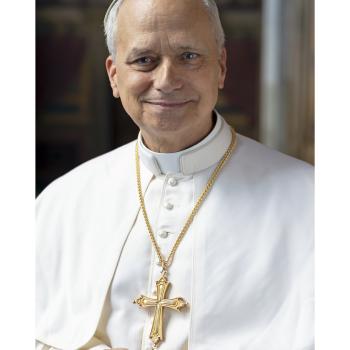Do words shape reality, or do they reveal it? In a world flooded with media, political spin, and online debates, the way we employ language carries enormous weight. If words create reality, we risk losing the truth entirely. But if language reveals reality, we must use it wisely, ensuring it reflects what is real, not just what we wish to be true.
What Creating Words Might Look Like
It makes me think of a scene from The Voyage of the Dawn Treader, from the Narnia series by C.S. Lewis.
“This is the Island where Dreams come true.”
“That’s the island I’ve been looking for this long time,” said one of the sailors. “I reckon I’d find I was married to Nancy if we landed here.”
“And I’d find Tom alive again,” said another.
“Fools!” said the man, stamping his foot with rage. “That is the sort of talk that brought me here, and I’d better have been drowned or never born. Do you hear what I say? This is where dreams–dreams, do you understand–come to life, come real. Not daydreams: dreams.”
There was about half a minute’s silence and then, with a great clatter of armor, the whole crew were tumbling down the main hatch as quick as they could and flinging themselves on the oars to row as they had never rowed before; and Drinian was swinging round the tiller, and the boatswain was giving out the quickest stroke that had ever been heard at sea.” (C.S. Lewis, The Voyage of the Dawn Treader)
If our dreams created reality, we might be stuck in a nightmare. The same could happen if we give a creating power to language.

What Our Words Say About Us
Instead of dreams, we can think about language. Like the sailors in Narnia, we might long for language to reshape our world—until we realize the consequences. If our words carried the power to define reality, what would that say about us? Do we speak truth, or do we twist language for our advantage? But, what would happen if our words came true? It is easy for us to exaggerate or to express ourselves poorly. Sometimes we speak in unjustified anger and sometimes we use our words to try to get out of responsibility. What do our words say about us? God wants us to speak the truth in charity, but often our words do more to condemn us than to build up those around us.
Power of Thought
The first reading (Sir. 27:4-7) leaves it very clear that our words say much about us. “Praise no one before he speaks, for it is then that people are tested” (Sir. 27:7). This invites us to reflect on our imaginative power. Our speech expresses our inner selves: our values, our virtues, and even our vices. Jesus tells us, “By your words, you will be acquitted, and by your words you will be condemned” (Matthew 12:37). Our language is more than expression—it reveals our hearts. When we speak carelessly or dishonestly, we reveal not just ignorance, but a deeper disorder within us.
The free man is not he who thinks all opinions equally true or false; that is not freedom but feeble-mindedness. The free man is he who sees the errors as clearly as he sees the truth. Right is right, even if nobody does it. Wrong is wrong, even if everybody is wrong about it (G.K. Chesterton).
Power of Speech
The power of the imagination makes itself clear in the power of speech. What we say is tremendously important. Christ invites us to remove the plank from our own eyes before we try to remove the splinter from someone else’s eye because it is so easy for us to fall into self-deception.
Let us always guard our tongue; not that it should always be silent, but that it should speak at the proper time (St. John Chrysostom).
The importance of guarding our tongue and controlling our language comes out frequently in Sacred Scripture. Words express our thoughts and so speak much about who we are. Jesus tells us to remove the beam in our eye before trying to remove the splinter we notice in the eye of someone else. This is an invitation to speak and act sincerely without being duplicitous.
Distortion of Language
We live in a world that often tries to distort language. Society tries to redefine words to obscure the truth. We could be tempted to think that it does not matter very much. However, the truth is that words are meant to communicate truth. We should make sure that when we express ourselves, we are reflecting the reality of our interior world and as much as possible the objective reality of the outside world as well.
Language does not create reality, but it reveals reality. If we distort our words, we distort our witness to Christ. Whether in conversation, online, or in our prayers, let us speak the truth in love (cf. Eph. 4:15).
Subscribe to the newsletter to never miss an article.













